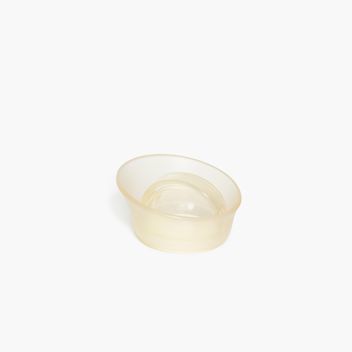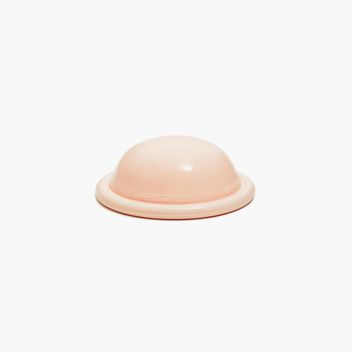How safe are cervical caps?
Cervical caps and spermicide can have some side effects, but they’re totally safe for most people.
Is the cervical cap safe for me?
The cervical cap is totally safe for most people. But the cervical cap may not work for you if:
-
you're not comfortable putting your fingers in your vagina
-
you have trouble putting in the cervical cap
-
you gave birth or had an abortion in the last 6 weeks
-
you're sensitive or allergic to silicone or spermicide
-
you have cervical cancer or other cervical conditions
-
you or your partner have HIV/AIDS
-
you've had toxic shock syndrome
You shouldn't use the cervical cap during your period. It could increase your risk of infection. And don’t use a friend’s cervical cap or let a friend use yours.
Your nurse or doctor can help you decide if the cervical cap is safe for you.
What are the risks of using a cervical cap?
Spermicide makes cervical caps a lot better at preventing pregnancy. But the chemical in most spermicides, nonoxynol-9, has some risks. If you use spermicide many times a day, it can irritate your vagina and increase your risk of HIV and other sexually transmitted infections. If you’re worried about the spread of STDs, use condoms along with your cervical cap and spermicide to protect yourself.
Some people or their partners might feel pain or discomfort when using the cervical cap. If you notice that your vagina feels sore or irritated after you use your cervical cap, it could be that you're sensitive to the spermicide or the material that the cervical cap is made of. You can try a different brand of spermicide and see if that makes a difference. If the irritation feels really bad or if switching brands doesn't help, talk to your doctor.
You should also talk to your doctor if:
-
your cervical cap feels uncomfortable
-
your vulva or vagina is sore, itchy, discolored, or swollen
-
you have discharge from your vagina that's different from your normal discharge
-
you keep getting bladder infections
These things may mean that something is wrong. Most problems are easy to treat, so don’t worry — just talk to your doctor as soon as you can.
Also watch out for signs of toxic shock syndrome. It’s extremely rare, but take your cervical cap out and call your doctor right away if you notice:
-
a sudden high fever
-
a rash that looks and feels like a sunburn
-
diarrhea or vomiting
-
a sore throat, aching muscles and joints
-
dizziness, faintness, and weakness

 Abstinence
Abstinence
 Breastfeeding
Breastfeeding
 Cervical Cap
Cervical Cap
 Condom
Condom
 Diaphragm
Diaphragm
 FAM
FAM
 Female Condom
Female Condom
 Implant
Implant
 IUD
IUD
 The Patch
The Patch
 The Pill
The Pill
 The Ring
The Ring
 The Shot
The Shot
 Spermicide
Spermicide
 Sponge
Sponge
 Sterilization
Sterilization
 Vasectomy
Vasectomy
 Withdrawal
Withdrawal